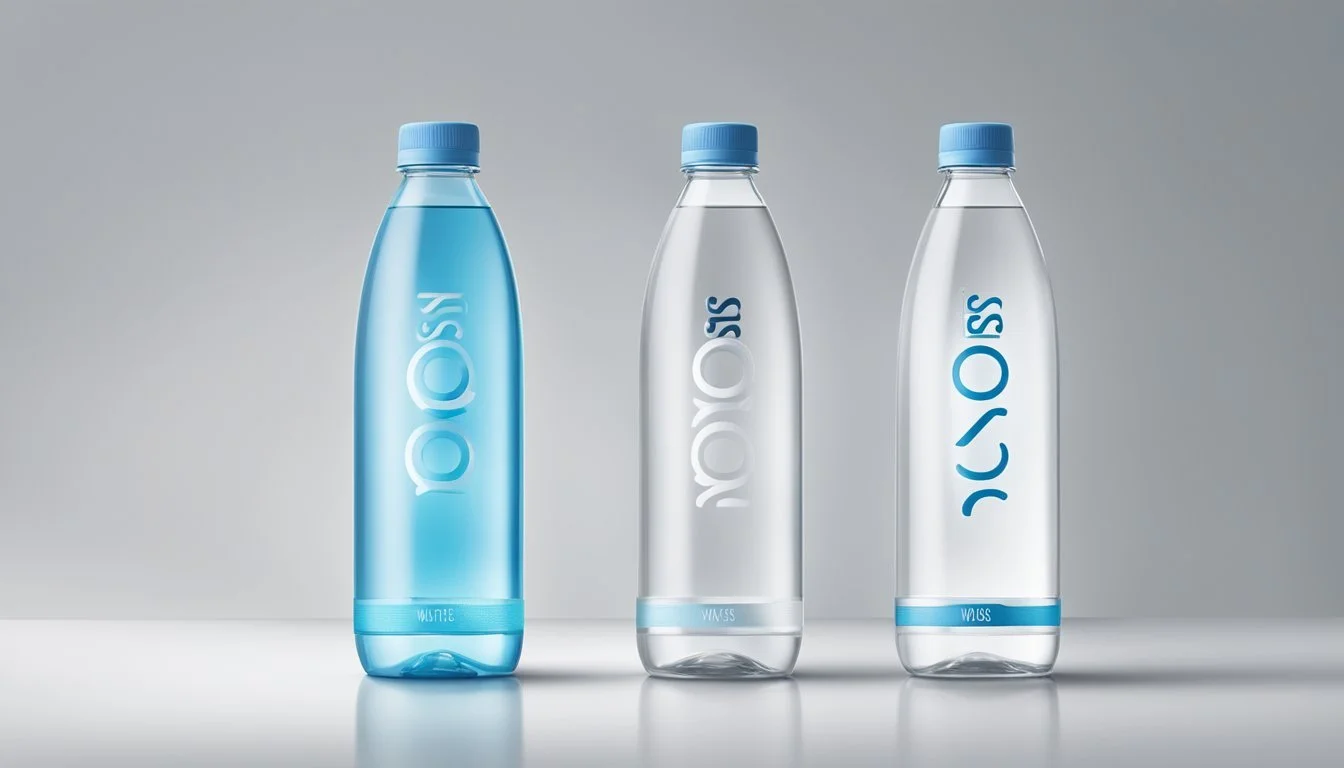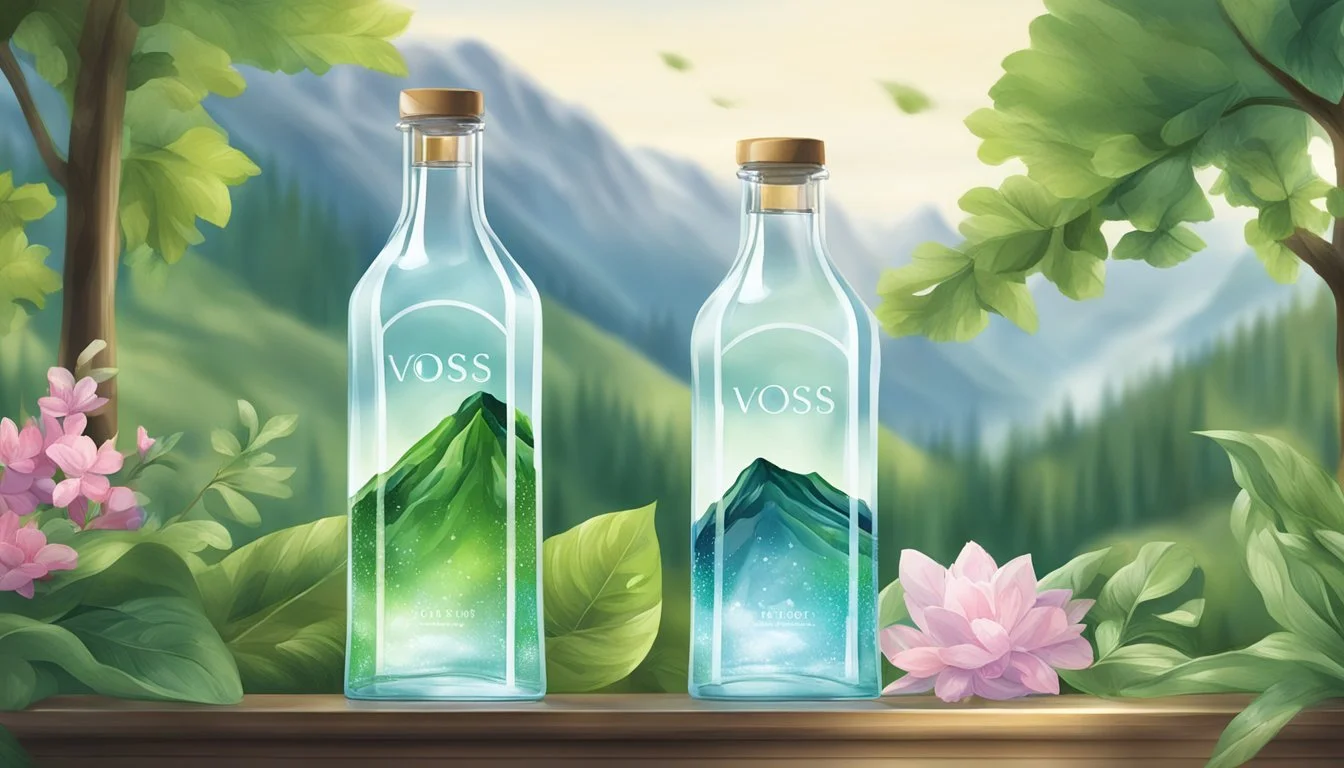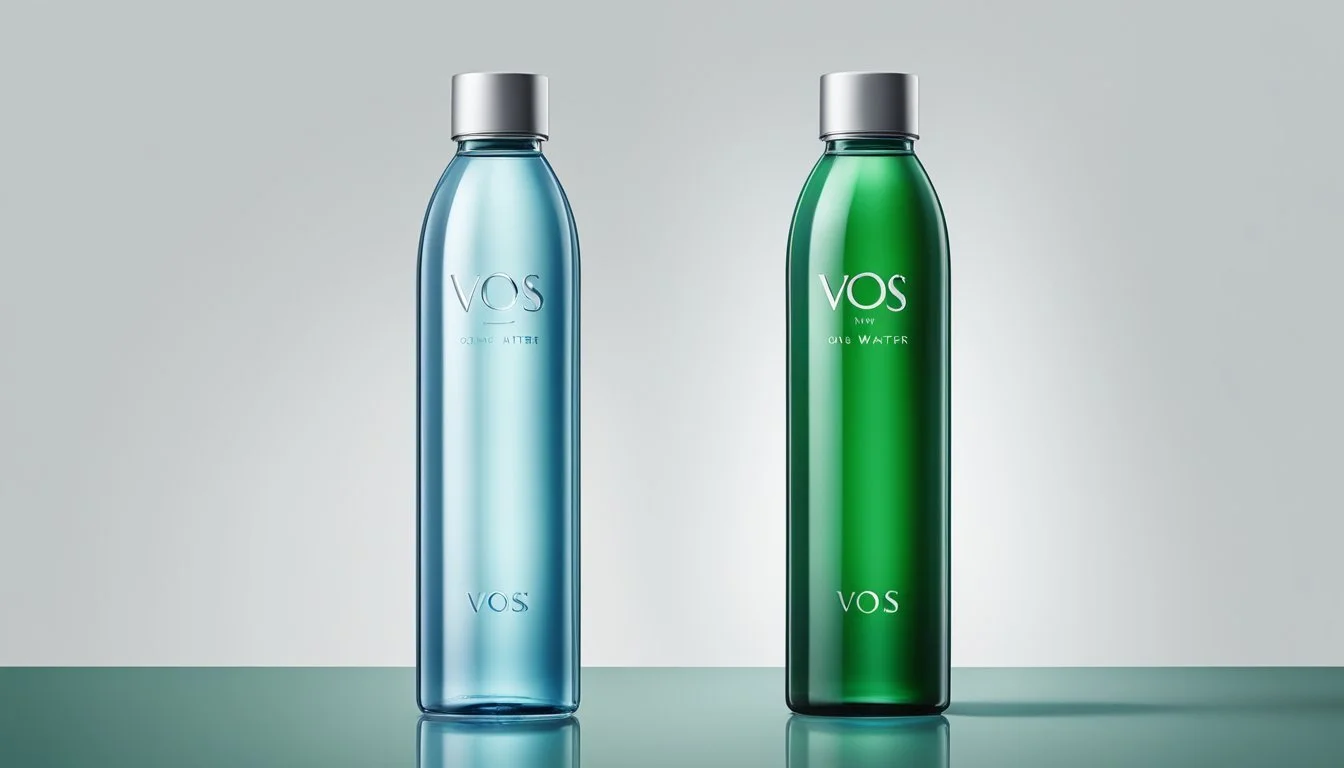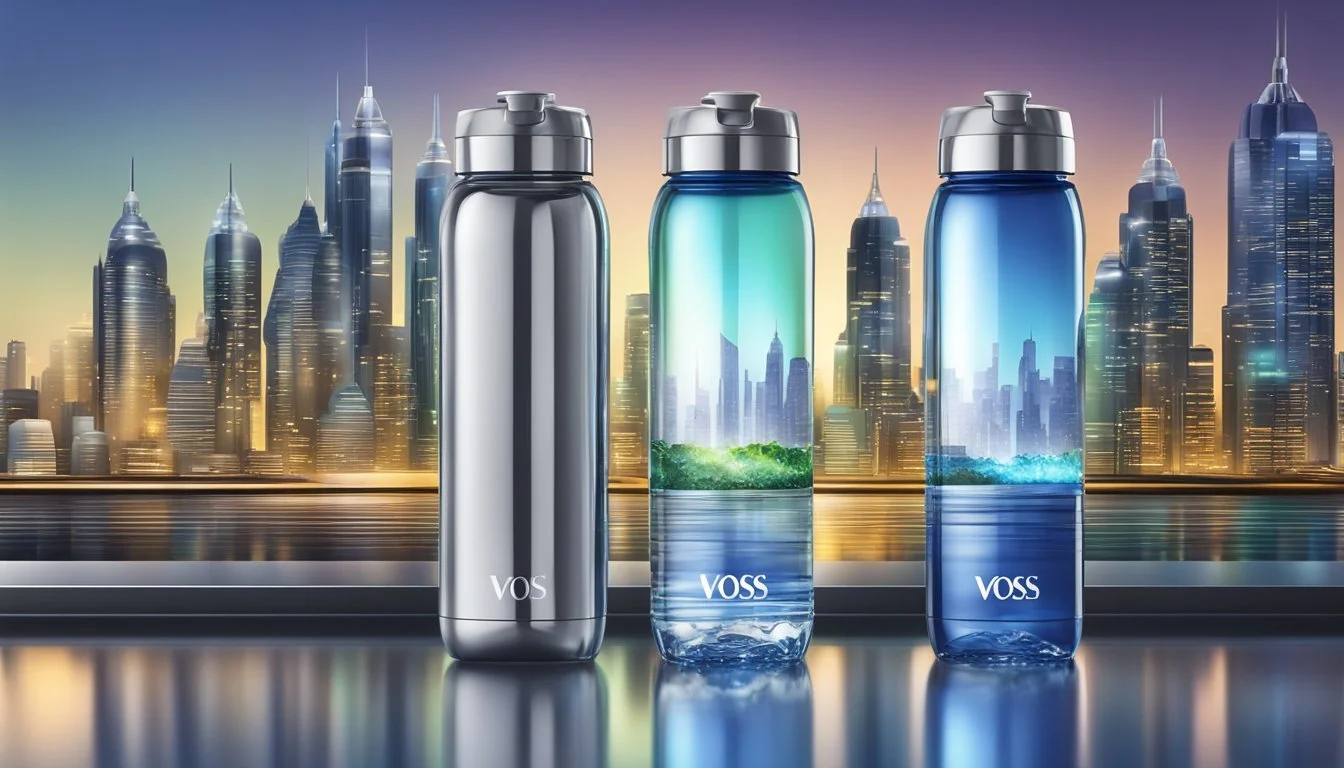Just Water vs. Voss
A Comprehensive Comparison for Hydration Choices
Choosing the right bottled water can be a surprising point of contention among health-conscious consumers and environmentally aware individuals. Two brands often at the center of this discourse are Just Water and Voss. Both have established a unique reputation in the market; Just Water is known for its eco-friendly packaging and ethical sourcing, while Voss is recognized for its sleek design and purity of taste.
These two brands' approach to water production and branding reflects the modern consumers’ dual focus on quality and sustainability. Just Water’s carton-based bottle, made from 82% renewable resources, offers a reduced carbon footprint compared to the standard plastic bottle, appealing to those who prioritize ecological impacts. On the other hand, Voss – often spotted at high-end hotels and restaurants – is synonymous with luxury, offering artesian water from Norway, which is naturally filtered and bottled at the source.
Consumers choosing between Just Water and Voss not only have to consider their personal preference for taste and packaging design but also the broader implications of their purchase on environmental sustainability and water sourcing ethics. As such, the debate is not solely about which bottled water tastes better, but which brand aligns more closely with personal values and lifestyle choices.
The Genesis of Bottled Water
The concept of bottled water traces back centuries when people sought pure water from natural springs, revered for its quality and health benefits. The commodification of water in sealed containers began for practical reasons: travel and the absence of safe drinking water.
Initially, spring water was the main source utilized for bottling, considered superior for its natural filtration and presumed mineral content. Several historical accounts suggest that early forms of bottled water were used by European royalty and medicinal spas, which capitalized on the therapeutic claims associated with certain springs.
By contrast, tap water, despite being commonly available, posed challenges with inconsistencies in safety and taste. As urbanization increased, so did the contamination risk of groundwater and public water systems. The demand for reliable and clean water led to a boom in the bottled water industry.
Today, consumers choose bottled water not just for safety but also for convenience and perceived taste differences. Companies often emphasize the origin of the water, with labels mentioning whether it's sourced from an artesian well, a mountain spring, or other types of water sources, suggesting a level of purity and quality.
Here is a brief overview of the types of water commonly found in bottles:
Spring Water: Collected directly from a natural spring.
Mineral Water: Contains natural minerals and is often carbonated.
Purified Water: Treated to remove chemicals and pathogens.
Artisanal Water: Sourced from a particular geological location and often marketed for its unique mineral composition and taste.
The industry's narrative is built on trust – trust that bottled water is indeed a cut above the rest.
Profiling Just Water
Just Water has positioned itself as an eco-conscious bottled water brand that emphasizes sustainability and socially responsible choices. The brand distinguishes itself through a unique filtration process, innovative packaging, and a distinct taste profile, catering to a lifestyle-oriented market.
Brand Origins and Philosophy
Just Water was founded with the mission of providing a bottled water that is better for the environment and for consumers. The brand advocates for responsible consumption and reducing plastic waste, aligning itself with a lifestyle that values sustainability.
Sustainable Packaging
The company is known for its distinctive blue carton, which is made of 82% renewable resources, primarily paper. The carton's cap is derived from sugarcane, representing Just Water's commitment to reducing the use of traditional plastic bottles. These eco-friendly containers are a nod towards a sustainable future in bottled water packaging.
Water Source and Filtration
Sourced from a spring in the Adirondack Mountains, Just Water undergoes a proprietary filtration process known as Hydro-7™. This filtration method is designed to maintain the natural pH level of the water while removing impurities, resulting in water that's as clean and natural as its source.
Composition and Taste
Just Water boasts a high pH level, which is often associated with a smooth taste. The natural minerals and pH level contribute to a clean and refreshing taste that distinguishes it from other bottled water brands on the market.
Market Positioning
Just Water aims to attract consumers who are not only interested in the taste and quality of their water but also in the impact of their purchase decisions on the environment. Competing with luxury water brands as well as mainstream options like those offered by Coca-Cola and PepsiCo, Just Water seeks to carve out a niche among lifestyle-oriented consumers, often making its products available on platforms like Amazon to reach a broad audience.
Profiling Voss
VOSS Water stands out in the bottled water industry for its premium branding, distinct bottle design, and high-quality artesian water from Norway, placing itself as a luxury lifestyle product.
Brand History and Development
VOSS Water was established with a clear premium image. Originating in Southern Norway, the brand has promoted itself as offering some of the world's purest water, having started distribution in 2001. Their global presence has been marked by catering to an audience that values not only taste and quality but also the sophistication associated with the brand.
Bottle Design and Material
Bottle Design: The sleek, cylindrical shape of VOSS bottles is instantly recognizable. The company has invested in glass bottles to enhance the product's luxury feel, making it a style statement.
Material Used: Significant attention to environmental impact has led VOSS to offer plastic bottles as well, which are made from high-grade PET to ensure durability and recyclability.
Water Quality and Features
Artesian Water: VOSS prides itself on offering artesian water, which is sourced and bottled in Norway. The water features a clean taste with very low mineral content.
Total Dissolved Solids (TDS): The still water version maintains fewer than 45 parts per million of TDS, much lower than many other brands, ensuring its distinct, crisp taste.
Voss in the Luxury Market
Lifestyle Association: VOSS is not just selling water; it's promoting a lifestyle. By positioning itself as a luxury good, VOSS resonates with both well-heeled and aspirational consumers.
Luxury Symbol: It has successfully become a symbol of style and luxury, often found in high-end hotels, restaurants, and night clubs, as well as being part of select events and partnerships that align with its premium brand image.
Analyzing Water Quality and Safety
When examining the water quality and safety of Just Water and Voss, consumers should consider several critical factors. These factors include the levels of minerals, potential contaminants, pH balance, and total dissolved solids (TDS).
Just Water boasts a natural alkalinity with a pH level of 8.0, which is higher than neutral. This is due to the natural minerals it contains, as it is sourced from a spring. The water is also reported to have a low TDS.
Voss, on the other hand, is known for its minimalistic content of minerals. Originating from an artesian source in Norway, Voss meets all bottled water standards for quality and safety at multiple levels. The TDS level in Voss water is generally low, reflecting its pureness and filtered qualities. The pH level tends to be just below neutral.
Here's a comparison of key quality indicators for Just Water and Voss:
Factor Just Water Voss Source Spring Artesian Aquifer pH Level ~8.0 (Alkaline) ~7.0 (Neutral) TDS Low Low Minerals Naturally enriched Minimal Contaminants Below EPA limits Below EPA limits
Both brands pride themselves on safety standards, ensuring that their water is free from harmful levels of contaminants. Just Water, categorized as mineral water, has a naturally higher mineral content, which might appeal to those seeking additional health benefits. Voss, typically categorized as purified water, appeals to consumers preferring a minimal mineral profile.
The choice between Just Water and Voss may come down to personal preference between the benefits of mineral-rich alkaline water and the clean, neutral taste of purified water. Both brands offer quality bottled water within safety regulations, with distinct characteristics imparted by their unique sources.
Taste Profile and Consumer Preference
When comparing Just Water and Voss, understanding the taste profile and consumer preferences is essential for determining which bottled water brand is preferred. This evaluation considers factors influencing taste, data from blind taste tests and reviews, and expert opinions and endorsements.
Factors Influencing Taste
Just Water boasts a high pH level, typically above 8, meaning it's more alkaline. Consumers often describe its taste as crisp and fresh, attributing this to its natural sourcing and minimal processing. The water also contains a balance of minerals which can subtly influence the fresh taste experienced by drinkers.
On the other hand, Voss water, sourced in Norway, is known for its extremely pure and fresh taste. This is due, in part, to its low mineral content which ensures nothing detracts from the water's clean taste. Despite a lower mineral content, Voss maintains a neutral pH level, which is appealing to many seeking a pure water taste without the added health claims of alkalinity.
Blind Taste Tests and Reviews
Results from blind taste tests can offer insights free from the influence of brand perception. Reviewers who tasted Just Water without knowledge of its brand often remarked on a smooth and balanced profile with a notable absence of any aftertaste. Conversely, Voss water consistently receives praise for its pure, refined taste that some describe as silky or soft on the palate.
Blind Taste Test Rankings:
Just Water: Often ranks high for freshness and balance.
Voss: Regularly commended for its purity and clean finish.
Expert Opinions and Endorsements
Water sommeliers and hydration experts tend to focus on the texture, pH balance, and overall mouthfeel of bottled waters. In their appraisals, Just Water is commonly cited as beneficial for those seeking alkaline water with a fresh taste and a touch of sweetness due to its mineral content. Meanwhile, Voss typically garners endorsements for being a neutral-tasting water, its quality attributed to the pristine aquifer from which it's drawn. Notably, Voss has secured a place in high-end restaurants and hotels, reflecting its status as a premium water brand.
Both brands hold certifications that attest to their purity standards and safety, reassuring consumers about the quality of their product offerings.
Environmental and Health Considerations
When evaluating bottled water brands like Just Water and Voss, environmental impact and health considerations are crucial factors. Just Water prides itself on using plant-based materials for its bottles, leading to a reduced environmental footprint. Their bottles are made primarily from paper, with a cap derived from sugarcane, reducing reliance on fossil fuels.
Voss, on the other hand, often uses glass bottles, which are 100% recyclable, and offers some products in high-grade PET plastic. Glass can lessen pollution, as it can be endlessly recycled without loss of purity or quality, but it can also be heavier to transport, which potentially increases carbon emissions.
Plastic bottles, commonly used in the bottled water industry, can contribute to pollution if not recycled properly. Even when they are recycled, the process can be energy-intensive.
Health considerations include the presence of BPA (bisphenol A), a chemical found in some plastics that can seep into water and affect health. While Voss’s PET plastic is BPA-free, this remains a concern for some consumers. Just Water’s cartons also avoid BPA, curbing those particular health concerns.
Both companies aim to limit the presence of pollutants in their water. Just Water sources from a spring in the Adirondack Mountains, touting natural purity and minimal treatment. Voss water also claims to be free from pollutants, sourced from an aquifer in Southern Norway under layers of rock and sand, serving as a natural filter.
By integrating environmentally conscious packaging and addressing health implications, both Just Water and Voss demonstrate an awareness of the consumer's growing preference for products that align with sustainable and healthy lifestyles.
Cost Comparison and Access
When analyzing the cost and accessibility of Just Water versus Voss Water, consumers find that there is a discernible difference. Just Water, an eco-friendly brand, often prices its product competitively. A 500ml bottle typically ranges from $1.29 to $1.99. In contrast, Voss Water, which markets itself as a premium brand, can be more expensive with prices for a similar-sized bottle often falling between $2.50 to $3.50.
Just Water touts its use of a paper-based carton which is sustainably sourced, leading to lower production costs, and thus, potentially, the more affordable retail price. Voss Water, known for its iconic glass bottle, incurs higher manufacturing and shipping costs, which may contribute to its premium pricing.
Brand Size Price Range Just Water 500ml $1.29 - $1.99 Voss Water 500ml $2.50 - $3.50
Both brands can be purchased at various retailers and are available online, including platforms like Amazon, increasing their accessibility to consumers. However, the frequency of availability in smaller retail outlets may vary, with Just Water potentially being more widely distributed due to its price point and sustainable market positioning.
In terms of corporate backing, Just Water is independent, whereas Voss has been acquired by Reignwood Group, the parent company that also distributes Red Bull. Neither brand is associated with the larger conglomerates like Nestlé or Coca-Cola, which dominate the global bottled water market. This could affect their distribution and access in certain markets compared to these giants' expansive networks.
Social and Cultural Impact of Bottled Water
Bottled water reflects a significant social and cultural phenomenon, touching various aspects of modern lifestyle and luxury. It is emblematic of a society where convenience and perceptions of purity drive consumption habits. Brands like Just Water and Voss exemplify how bottled water can embody a lifestyle choice, often associated with status and health consciousness.
In pop culture, water drinkers may choose brands that resonate with celebrity endorsements or eco-friendly packaging. Just Water, for example, is known for its ethical sourcing and sustainable materials, aiming to appeal to environmentally aware consumers. Meanwhile, Voss, with its sleek bottle design, is often seen in high-end restaurants and celebrity events, signaling a luxury lifestyle.
Bottled water also engages with cultural narratives around purity and safety. Despite tap water being widely available and often safe, public trust varies. High-profile incidents of contaminated public water supplies have inadvertently boosted the bottled water industry, as concerned citizens seek out alternative sources they perceive as safer.
Here's a glance at the cultural association with bottled water:
Convenience: Grab-and-go culture has elevated bottled water to a staple in daily life.
Perceived Purity: Bottled water is often marketed as cleaner or more natural than tap water.
Social Status: Choice of water can be a status symbol in various social contexts.
Health and Lifestyle: It's promoted as an essential part of a health-conscious lifestyle.
Environmental Impact: Choices reflect awareness of sustainability (e.g., Just Water's eco-friendly approach).
Through these lenses, consumers' choice between brands like Just Water and Voss can reflect not only personal preference but a statement on societal values and identity.
Future of Bottled Water
The bottled water industry faces a critical period as sustainability becomes a driving concern for consumers and regulators. Innovations aimed at reducing the environmental impact of bottled water packaging are at the forefront of industry priorities. Eco-friendly materials like plant-based plastics and aluminum are increasingly being adopted for water bottles, representing a shift towards biodegradable and recyclable solutions.
They are also exploring water sources with a lower carbon footprint, such as local springs, to reduce transportation emissions. Refill stations and water vending machines are likely to become more common, encouraging the use of reusable containers.
Water purification technology is another area of prime importance. Advancements in filtration and purification systems are expected to improve water quality and reduce reliance on natural spring sources, which may have a positive effect on preserving natural ecosystems.
Product Innovation:
Plant-based bottles
Reusable containers
Advanced filtration systems
Environmental Strategies:
Emphasizing local sourcing
Investing in carbon-neutral practices
Adopting waste reduction initiatives
The industry must navigate regulatory changes around single-use plastics. This could lead to more stringent industry standards and greater transparency in the bottled water supply chain.
In conclusion, the future of bottled water will heavily rely on balancing consumer demand with ecological responsibility. Companies that lead in sustainable practices and embrace cutting-edge innovations are poised to remain at the forefront of the industry.







